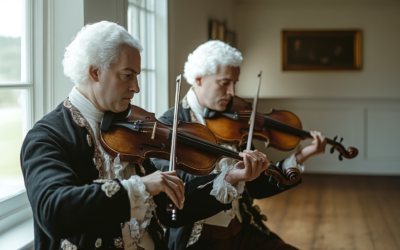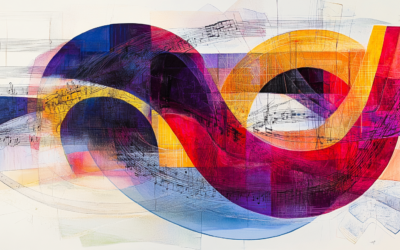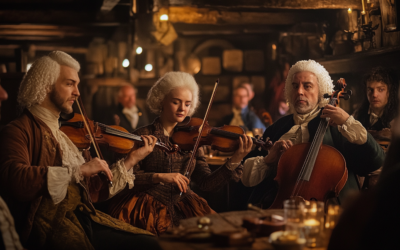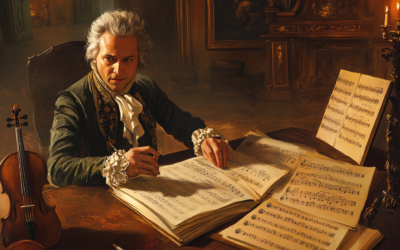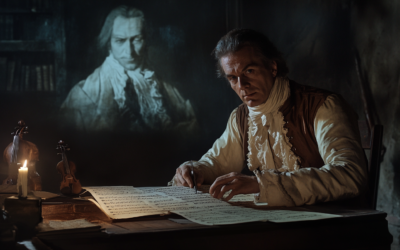Wolfgang Amadé Mozart
#1 The Hidden Truth of Mozart’s Education
@MozartrazoM
In this video, we uncover the hidden truth behind Wolfgang Amadeus Mozart’s early education and challenge the long-held belief in his effortless genius. While history often celebrates Mozart as a child prodigy, effortlessly composing music from a young age, the reality is far more complex.
Mozart’s father, Leopold, was a key figure in shaping not only his son’s musical development but also the public perception of his talent. Leopold, an ambitious yet frustrated musician, played an instrumental role in composing, transcribing, and promoting much of Wolfgang’s early music.
The works credited to young Mozart were, in fact, heavily guided or even written by Leopold. From manipulating Wolfgang’s age to enhancing his image as a prodigy, Leopold controlled his son’s rise to fame. We’ll explore key examples, such as the Minuet K.6, often believed to be one of Wolfgang’s first compositions, which was largely reworked by Leopold.
We’ll also discuss how Leopold’s ambition and control crafted the myth of Wolfgang as a child genius. Was Mozart’s talent truly his own, or was it carefully constructed by his father?
Join us as we delve into the untold story of Mozart’s education and the significant influence of Leopold on his son’s career. If you’re interested in challenging traditional narratives about Mozart and classical music history, this video is for you.
Don’t forget to like, comment, and subscribe to our channel for more videos on the real story behind Mozart’s legacy!
You May Also Like
The Mysterious Case of Mozart’s Duets: An Unfinished Story
Mozart’s string duets have long been shrouded in mystery, from his father’s heavy influence in 1768 to his supposed act of charity for a dying Michael Haydn in 1783. These unfinished works reveal more about the composer’s life and struggles than they do about his musical genius.
The Misattribution of Mozart’s K.2 89a (K.6 73i): A Questionable Canon
K.2 89a (K.6 73i), attributed to Mozart, is riddled with issues—missing voices, incomplete harmonies, and even the absence of text. Should this piece really be in his catalogue?
The Borrowed Simplicity: Mozart’s Canons K.555, K.557, and K.562
The canons K.555, K.557, and K.562, often overlooked for their simplicity, reveal striking similarities with the works of Antonio Caldara. These three pieces, dated 1788, demonstrate how Mozart adapted and simplified Caldara’s contrapuntal structures, masking his influences while reflecting the galant style of the era.
Mozart’s Quartet of Lodi: A Dated Work with Many Influences
Mozart’s Quartet of Lodi is often praised as an early masterpiece. But was it really his own work?
Mozart’s Violin Pieces: Substitutes for Failed Movements?
Despite revisions, Mozart’s violin concertos remain flawed, while his minor pieces, K.261 and K.373, surprisingly garner more attention in his correspondence than his major works.
The Questionable Origins of Mozart’s Violin Concertos
Are Mozart’s violin concertos truly original? This article explores the possibility that the Czech composer Josef Mysliveček played a far larger role in their creation than previously acknowledged.


